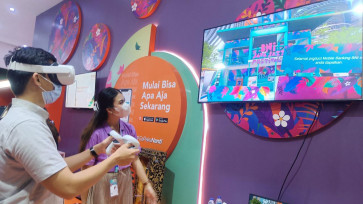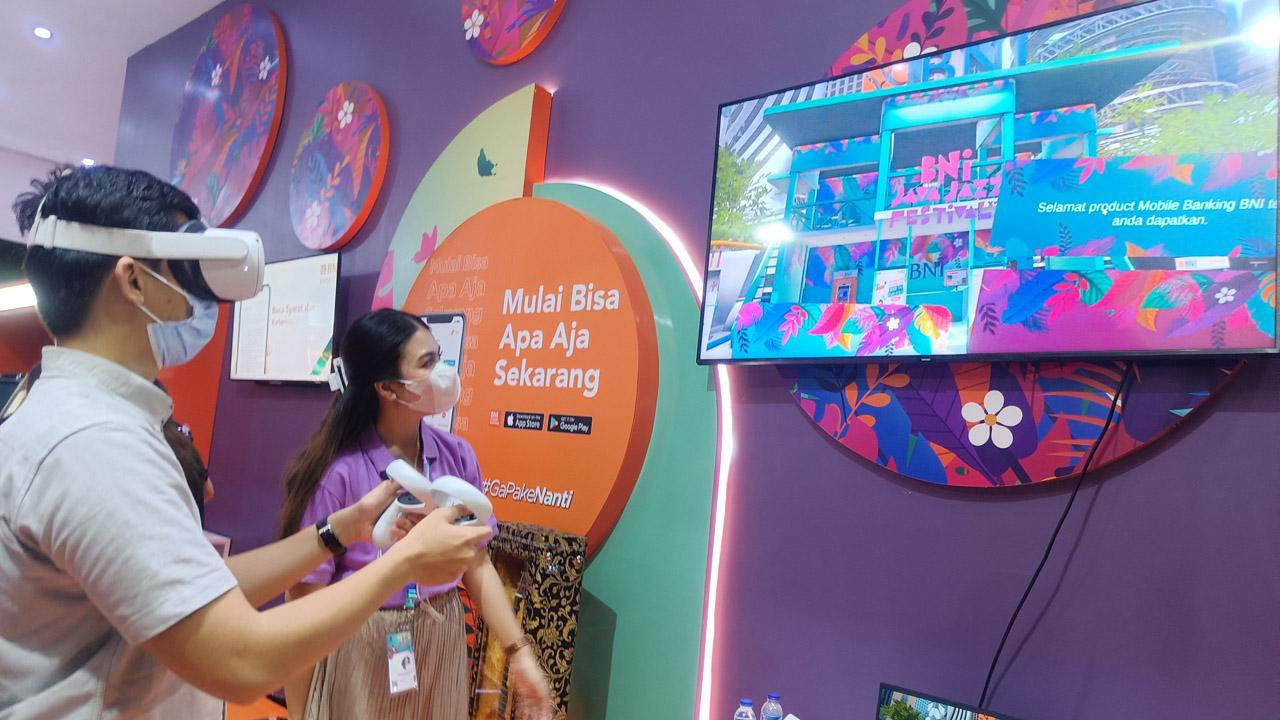Popular Reads
Top Results
Can't find what you're looking for?
View all search resultsPopular Reads
Top Results
Can't find what you're looking for?
View all search resultsUnpacking Indonesia’s digital accessibility
A more meaningful indicator to examine digital access is how well people use the internet and how safe they are when conducting digital activities.
Change text size
Gift Premium Articles
to Anyone
As chair of this year’s Group of 20, Indonesia is highlighting the potential of digital technologies for economic growth and social inclusion by making digital transformation one of its presidency’s three priorities. But the country itself is still grappling with the persistent issue of digital accessibility.
Without accessibility for all segments of society, digital transformation will only widen the digital divide that leaves the most vulnerable behind. Uneven internet access has been a fundamental challenge in Indonesia’s inclusive digital transformation, but digital accessibility goes beyond that, and access to services and markets is also required.
First and foremost, reliable and affordable internet access is the foundation of digital transformation. As of January 2022, about 73.7 million people in Indonesia, 26.3 percent of the total population, do not use the internet. More than 12,500 villages and 104,000 schools across Indonesia still have no internet access.
The internet penetration rate is also lower for women than men. Unequal internet access means those without the internet are excluded from the digital sphere and unable to tap into the social and economic opportunities it opens up.
For those with internet access, an overwhelming 95 percent use mobile data on their smartphones, an Indonesian Internet Providers Association (APJII) survey shows. The median mobile internet speed in Indonesia is 16.52 megabits per second (Mbps), slower than its neighbors, like the Philippines (19.26 Mbps), Malaysia (29.36 Mbps), Thailand (33.68 Mbps) and Singapore (64.01 Mbps). Indonesia sits 105th out of 141 countries in the Speedtest Global Index ranking.
The need to expand and improve internet access is well recognized by the Indonesian government, as shown by the Communications and Information Ministry’s plan to build more than 7,900 base transceiver stations by 2022.
Internet access is necessary but not sufficient. The more meaningful indicator to examine digital access is how well people use the internet and how safe they are when conducting digital activities.
to Read Full Story
- Unlimited access to our web and app content
- e-Post daily digital newspaper
- No advertisements, no interruptions
- Privileged access to our events and programs
- Subscription to our newsletters
Purchase access to this article for
We accept



Redirecting you to payment page
Pay per article

Unpacking Indonesia’s digital accessibility
Rp 35,000 / article
- Palmerat Barat No. 142-143
- Central Jakarta
- DKI Jakarta
- Indonesia
- 10270
- +6283816779933




Your Opinion Matters
Share your experiences, suggestions, and any issues you've encountered on The Jakarta Post. We're here to listen.
Thank You
Thank you for sharing your thoughts. We appreciate your feedback.
Share options
Quickly share this news with your network—keep everyone informed with just a single click!
Gift Premium Articles
to Anyone
Share the best of The Jakarta Post with friends, family, or colleagues. As a subscriber, you can gift 3 to 5 articles each month that anyone can read—no subscription needed!
Continue in the app
Get the best experience—faster access, exclusive features, and a seamless way to stay updated.











